Graduate students affiliated with NYCTC
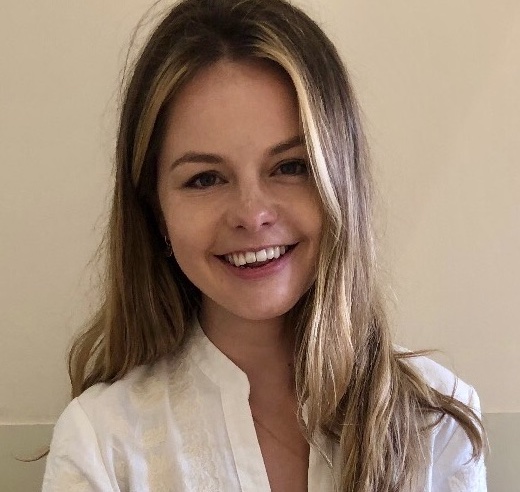 Isobel Akerman (ia375@cam.ac.uk) is a PhD student at the University of Cambridge. She is interested in the emergence of environmental thought in modern Britain. Her thesis explores environmental research and public education within cultural and scientific institutions from c.1960 to the present day. This work is jointly funded by the Cambridge Trust and Newnham College. Isobel co-convenes the Cambridge Cultural History Workshop.
Isobel Akerman (ia375@cam.ac.uk) is a PhD student at the University of Cambridge. She is interested in the emergence of environmental thought in modern Britain. Her thesis explores environmental research and public education within cultural and scientific institutions from c.1960 to the present day. This work is jointly funded by the Cambridge Trust and Newnham College. Isobel co-convenes the Cambridge Cultural History Workshop.
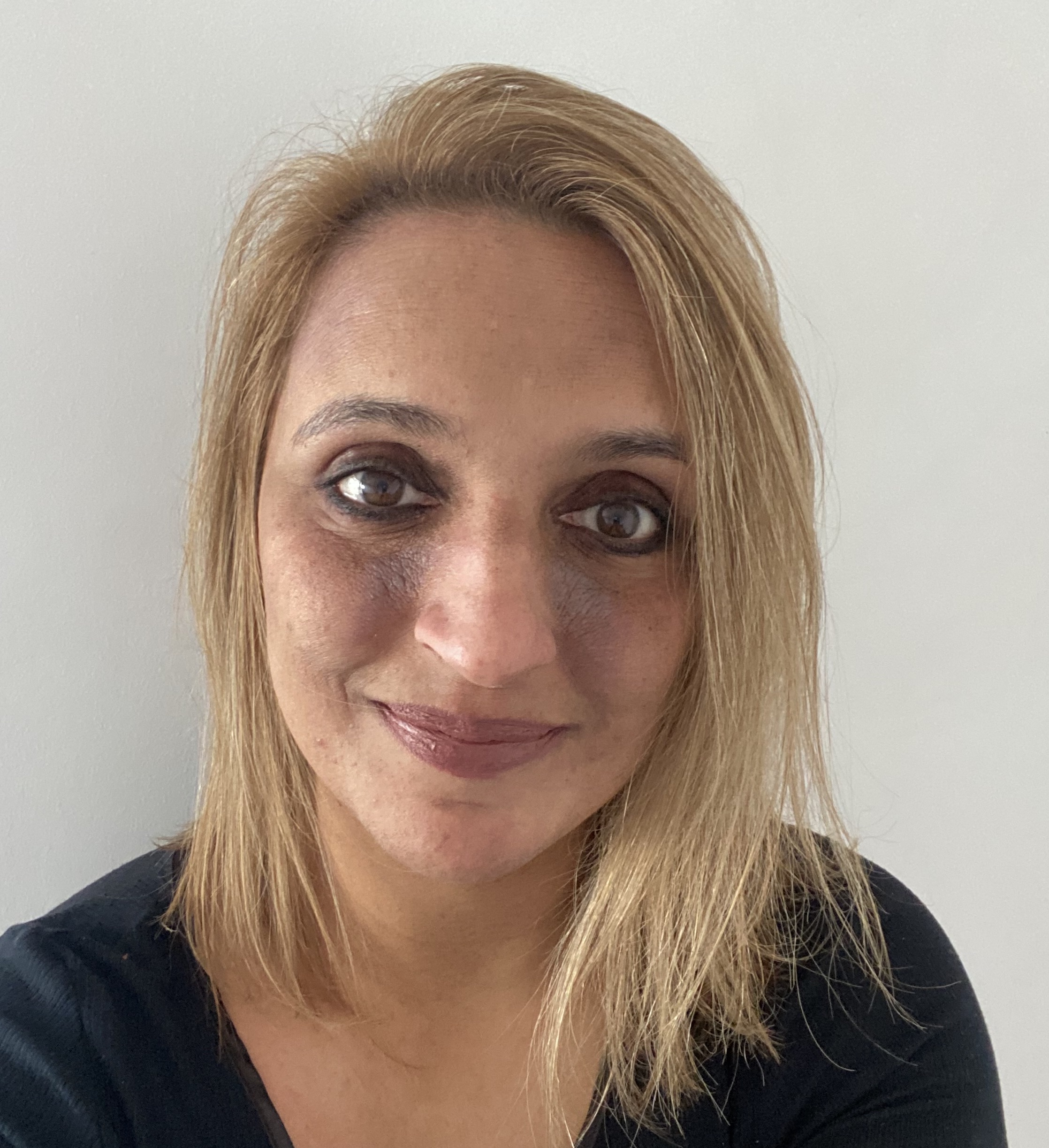 Syeda Ali (sufa2@cam.ac.uk) is a PhD student at the University of Cambridge. Syeda is interested in the intersections between education policy and school practice in 1980s Britain, with a particular focus on the regulation of gender and sexuality. She is using oral history interviews with teachers to assess the impact of Section 28 in schools, and within a wider cultural and social context. Her work is funded jointly by the Cambridge Trust and Wolfson College.
Syeda Ali (sufa2@cam.ac.uk) is a PhD student at the University of Cambridge. Syeda is interested in the intersections between education policy and school practice in 1980s Britain, with a particular focus on the regulation of gender and sexuality. She is using oral history interviews with teachers to assess the impact of Section 28 in schools, and within a wider cultural and social context. Her work is funded jointly by the Cambridge Trust and Wolfson College.
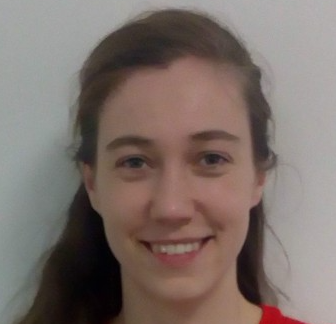 Hannah Blythe (hgb27@cam.ac.uk) is a PhD student at Cambridge University. Hannah’s thesis examines mental health charity in Britain between 1879 and 1939, focussing on the first philanthropic organisations to treat patients outside the asylum. Her work is funded by the ESRC. Hannah has a broader interest in the treatment and experience of mental illness and psychological suffering, and is a co-convener for the CRASSH research network, ‘Talking as Cure’.
Hannah Blythe (hgb27@cam.ac.uk) is a PhD student at Cambridge University. Hannah’s thesis examines mental health charity in Britain between 1879 and 1939, focussing on the first philanthropic organisations to treat patients outside the asylum. Her work is funded by the ESRC. Hannah has a broader interest in the treatment and experience of mental illness and psychological suffering, and is a co-convener for the CRASSH research network, ‘Talking as Cure’.
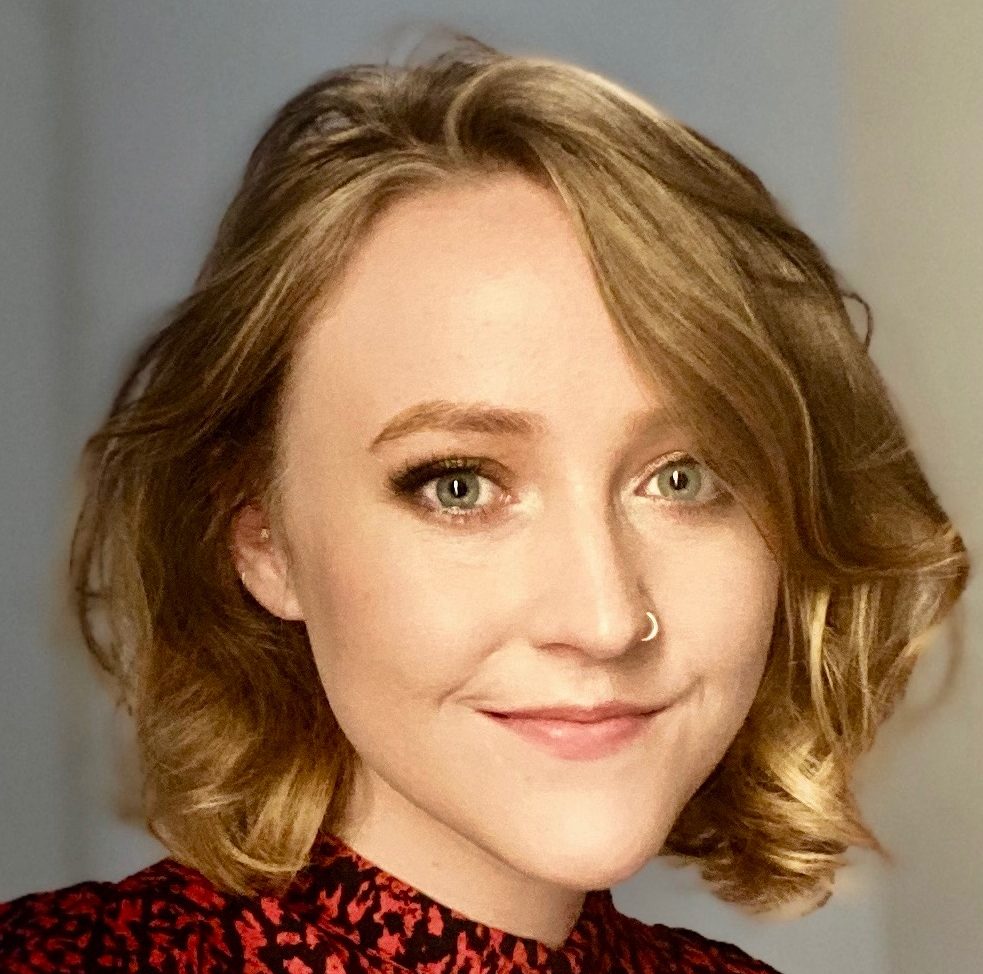 Julia Burke (jpb2219@columbia.edu) is a PhD student at Columbia University. She is interested in the gendered practices of literary production and publication in nineteenth century Britain. Her past work has argued for a re-examination of Frankenstein’s place in the canon of early European socialist thought, drawing from the histories of literary romanticism, Marxism, and British print culture.
Julia Burke (jpb2219@columbia.edu) is a PhD student at Columbia University. She is interested in the gendered practices of literary production and publication in nineteenth century Britain. Her past work has argued for a re-examination of Frankenstein’s place in the canon of early European socialist thought, drawing from the histories of literary romanticism, Marxism, and British print culture.
 Chris Campbell (cjc236@cam.ac.uk) is a PhD student at the University of Cambridge. He is interested in British cultural diplomacy in the post-war era. His research investigates the work of the British Council, using gender as an analytical category to examine how its staffing policies and internal dynamics affected the cultural image of Britain which it projected abroad.
Chris Campbell (cjc236@cam.ac.uk) is a PhD student at the University of Cambridge. He is interested in British cultural diplomacy in the post-war era. His research investigates the work of the British Council, using gender as an analytical category to examine how its staffing policies and internal dynamics affected the cultural image of Britain which it projected abroad.
 Sam Coggeshall (sfc2117@columbia.edu) is a PhD student at Columbia. He studies the political and intellectual interaction of the British Empire and the early Soviet state, focusing on ideas of the nation and competing plans for its cultivation and protection. He is working on a project about British consular representatives in Poland and other parts of the Russian Empire in the first two decades of the twentieth century.
Sam Coggeshall (sfc2117@columbia.edu) is a PhD student at Columbia. He studies the political and intellectual interaction of the British Empire and the early Soviet state, focusing on ideas of the nation and competing plans for its cultivation and protection. He is working on a project about British consular representatives in Poland and other parts of the Russian Empire in the first two decades of the twentieth century.
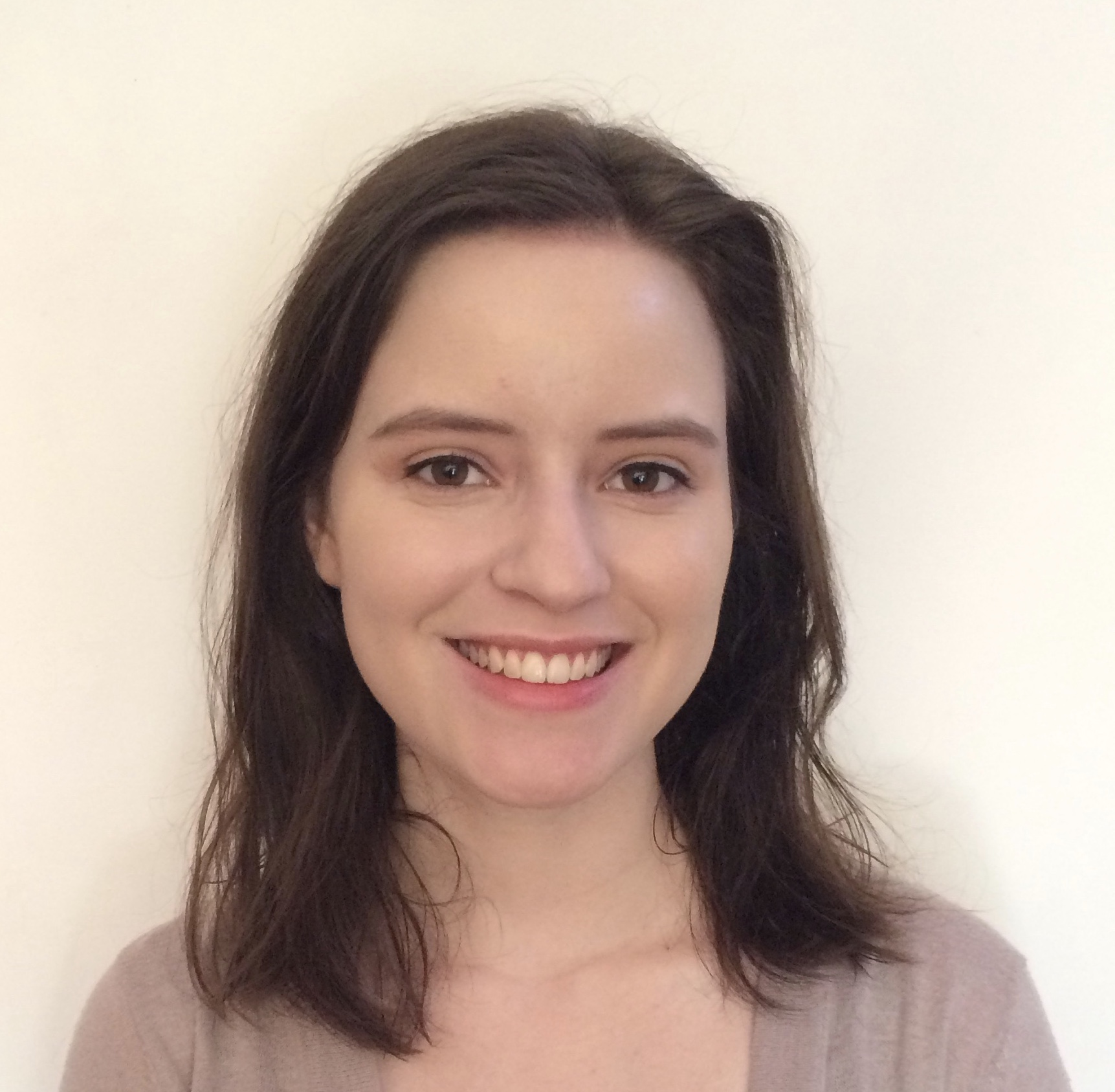 Rose Dryzek (rcd50@cam.ac.uk) is a PhD student at the University of Cambridge. Her research focuses on homeworkers and related activism since the 1970s, also looking at how this intersected with the labour movement, the women’s movement, and migrant and minority activism. The project is a Collaborative Doctoral Award in partnership with Homeworkers Worldwide.
Rose Dryzek (rcd50@cam.ac.uk) is a PhD student at the University of Cambridge. Her research focuses on homeworkers and related activism since the 1970s, also looking at how this intersected with the labour movement, the women’s movement, and migrant and minority activism. The project is a Collaborative Doctoral Award in partnership with Homeworkers Worldwide.
 Roslyn Dubler (red2147@columbia.edu) is a Ph.D. student in modern European history at Columbia University working on the history of gender, social policy, and European integration in the late twentieth century. Her dissertation, tentatively titled ‘Indiscriminate Integration: Sex, Social Policy, and the State’, proposes to write the first history of the international norm of non-discrimination in Europe through a comparison of British and German welfare policy and law.
Roslyn Dubler (red2147@columbia.edu) is a Ph.D. student in modern European history at Columbia University working on the history of gender, social policy, and European integration in the late twentieth century. Her dissertation, tentatively titled ‘Indiscriminate Integration: Sex, Social Policy, and the State’, proposes to write the first history of the international norm of non-discrimination in Europe through a comparison of British and German welfare policy and law.
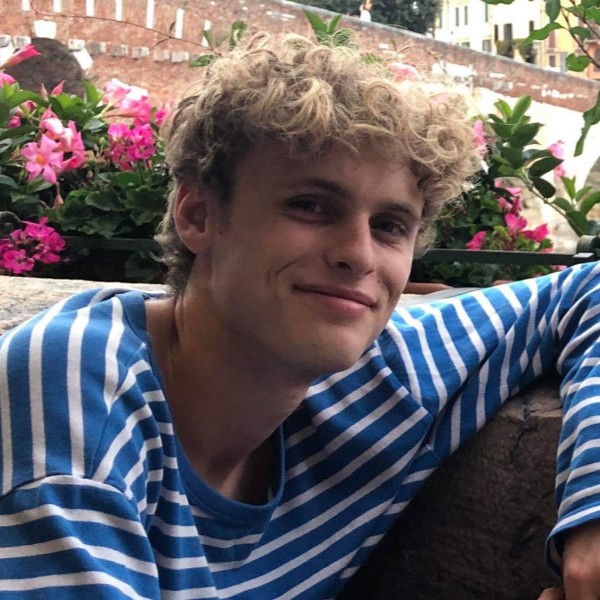 Ben Francis (bwf9887@nyu.edu) is a PhD student at New York University. He is interested in the lived experience of urban change in twentieth century Britain. His thesis will explore this in relation to community organisation around local development projects.
Ben Francis (bwf9887@nyu.edu) is a PhD student at New York University. He is interested in the lived experience of urban change in twentieth century Britain. His thesis will explore this in relation to community organisation around local development projects.
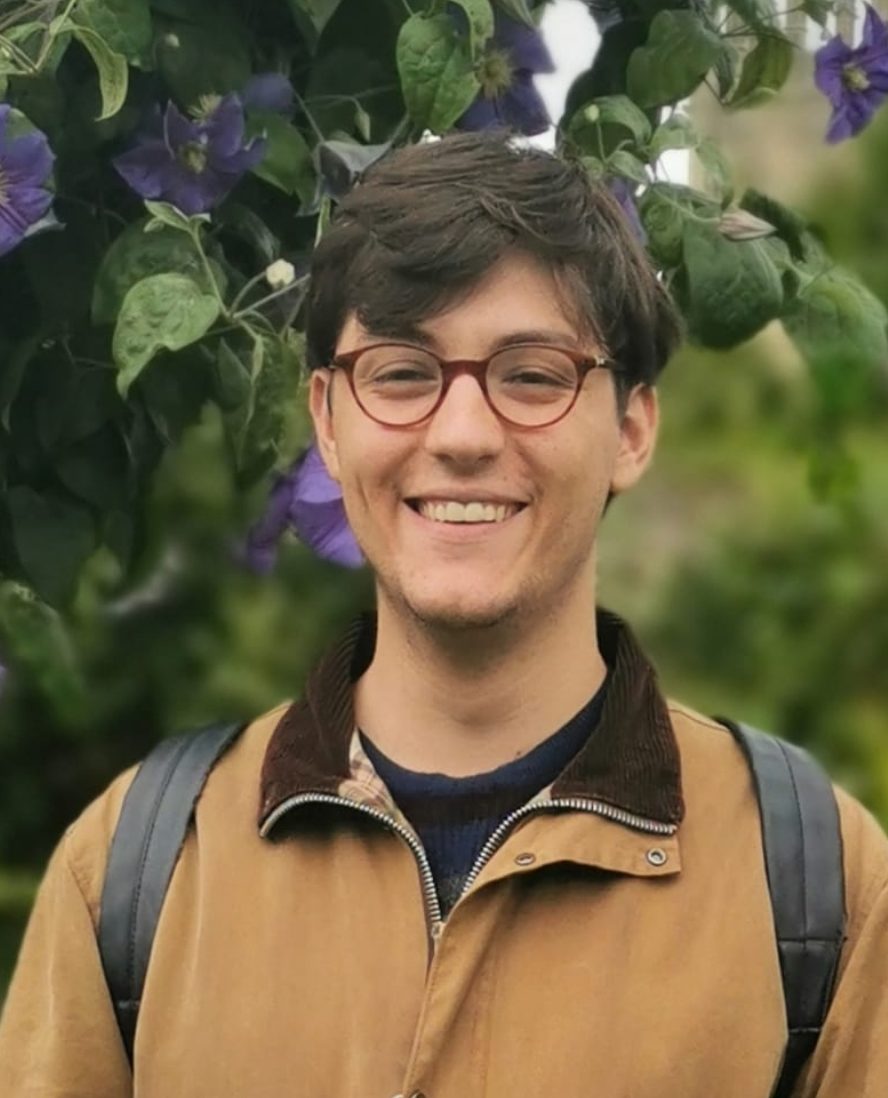 Elijah Ferrante (emf2218@columbia.edu) is a PhD student in modern European history at Columbia University. He is interested in the histories of the welfare state, poverty, care work and religion. He is working toward a comparative project examining the welfare state through the experiences and welfare provision for single parents in specific regions of Britain, Germany and Italy in the late twentieth century
Elijah Ferrante (emf2218@columbia.edu) is a PhD student in modern European history at Columbia University. He is interested in the histories of the welfare state, poverty, care work and religion. He is working toward a comparative project examining the welfare state through the experiences and welfare provision for single parents in specific regions of Britain, Germany and Italy in the late twentieth century
 Fearghal Grace (ftg22@cam.ac.uk) is a PhD candidate in Modern British History at Emmanuel College, University of Cambridge. His thesis explores the shifting conceptions of citizenship which occurred after the First World War and aims to create a greater understanding of democratic citizenship as it relates to ethnicity, minority status and state welfare in the period 1918-1939. Arguing that histories of interwar politics has been slow to recognise the role and experiences of Britain’s minority ethnic communities in shaping the pre-history of the Welfare State, Fearghal is focusing his research on ex-service groups in the Irish, Black and Jewish communities.
Fearghal Grace (ftg22@cam.ac.uk) is a PhD candidate in Modern British History at Emmanuel College, University of Cambridge. His thesis explores the shifting conceptions of citizenship which occurred after the First World War and aims to create a greater understanding of democratic citizenship as it relates to ethnicity, minority status and state welfare in the period 1918-1939. Arguing that histories of interwar politics has been slow to recognise the role and experiences of Britain’s minority ethnic communities in shaping the pre-history of the Welfare State, Fearghal is focusing his research on ex-service groups in the Irish, Black and Jewish communities.
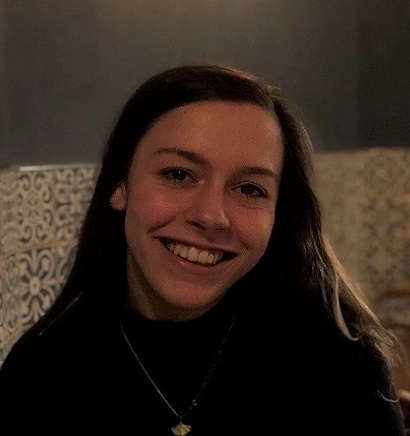 Rebecca Goldsmith (relg2@cam.ac.uk) is a PhD student at the University of Cambridge. She is interested in histories of class, political culture and place. Her thesis explores the nature of working-class support for the Labour Party in the mid-twentieth century, using Mass-Observation material to study the shifting relationship between official and vernacular, national and local class languages. Her research is jointly funded by the Arts and Humanities Research Council’s Doctoral Training Partnership and the Isaac Newton Trust.
Rebecca Goldsmith (relg2@cam.ac.uk) is a PhD student at the University of Cambridge. She is interested in histories of class, political culture and place. Her thesis explores the nature of working-class support for the Labour Party in the mid-twentieth century, using Mass-Observation material to study the shifting relationship between official and vernacular, national and local class languages. Her research is jointly funded by the Arts and Humanities Research Council’s Doctoral Training Partnership and the Isaac Newton Trust.
 Alice Gorton (alg2239@columbia.edu) studies the history of the British empire in the late-nineteenth and early twentieth centuries. She is particularly interested in the political and intellectual currents that underpinned land and resource expropriation in settler colonies known for their production of staple agricultural goods. Her work seeks to bring together a large body of scholarship on nineteenth-century liberal political economy with an in-depth exploration of the realities of life on the ground for farmers, agricultural laborers, and Indigenous peoples in farming towns across the British dominions. Alice is also interested in traditionalist arts movements, agrarian intellectuals, rural life, and religious politics in Britain and the British empire between 1870 and 1918.
Alice Gorton (alg2239@columbia.edu) studies the history of the British empire in the late-nineteenth and early twentieth centuries. She is particularly interested in the political and intellectual currents that underpinned land and resource expropriation in settler colonies known for their production of staple agricultural goods. Her work seeks to bring together a large body of scholarship on nineteenth-century liberal political economy with an in-depth exploration of the realities of life on the ground for farmers, agricultural laborers, and Indigenous peoples in farming towns across the British dominions. Alice is also interested in traditionalist arts movements, agrarian intellectuals, rural life, and religious politics in Britain and the British empire between 1870 and 1918.
 Victoria Harrison-Mirauer (vrm1000@cam.ac.uk) is a PhD student at the University of Cambridge. Victoria’s research concerns human-technology relations, electrification and cultural history from the late 19th to the early 20th century. Victoria co-convenes the Cambridge Cultural History Workshop.
Victoria Harrison-Mirauer (vrm1000@cam.ac.uk) is a PhD student at the University of Cambridge. Victoria’s research concerns human-technology relations, electrification and cultural history from the late 19th to the early 20th century. Victoria co-convenes the Cambridge Cultural History Workshop.
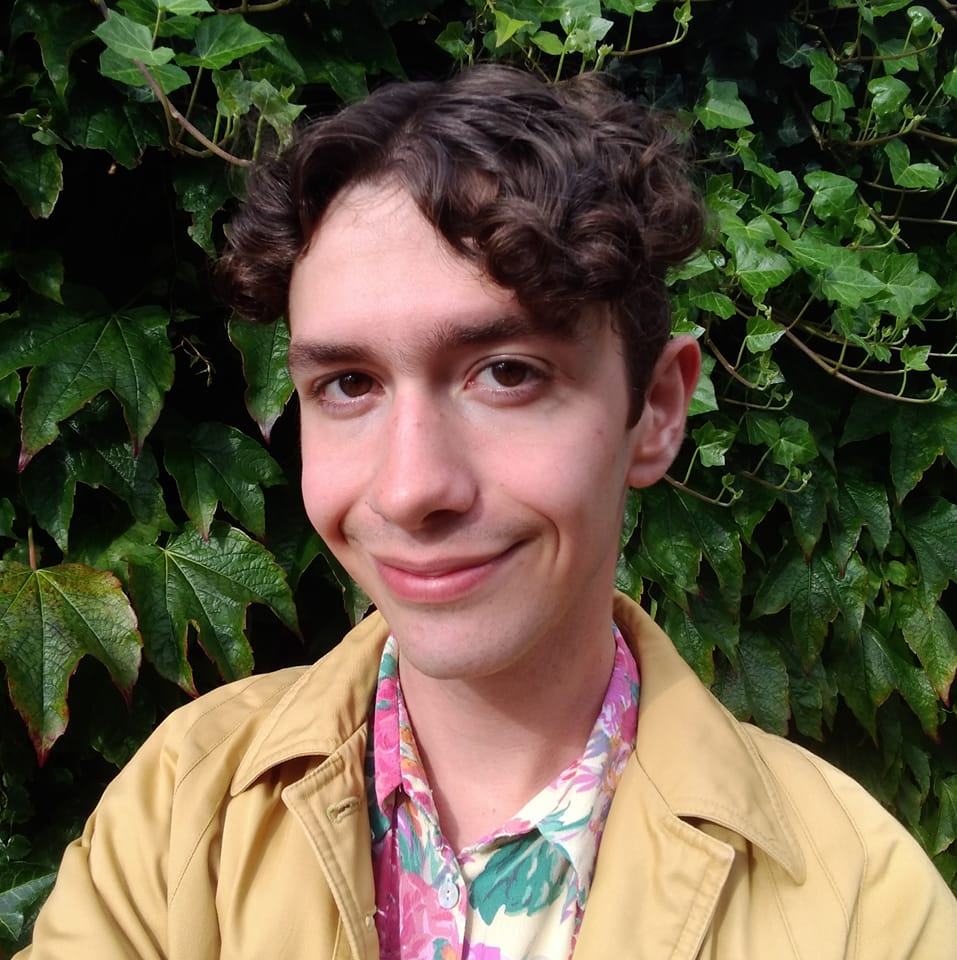 Piers Haslam (ph551@cam.ac.uk) is a PhD student at the University of Cambridge. He is interested in histories of sexuality, gender, and subjectivity. Piers’s research explores meanings and experiences of ‘confirmed’ bachelorhood and male friendship in Britain from the late-nineteenth to the mid-twentieth centuries, using autobiographies and diaries to suggest new ways of approaching the history of sexuality, in dialogue with critical interventions from queer theory and the emerging field of asexuality studies.
Piers Haslam (ph551@cam.ac.uk) is a PhD student at the University of Cambridge. He is interested in histories of sexuality, gender, and subjectivity. Piers’s research explores meanings and experiences of ‘confirmed’ bachelorhood and male friendship in Britain from the late-nineteenth to the mid-twentieth centuries, using autobiographies and diaries to suggest new ways of approaching the history of sexuality, in dialogue with critical interventions from queer theory and the emerging field of asexuality studies.
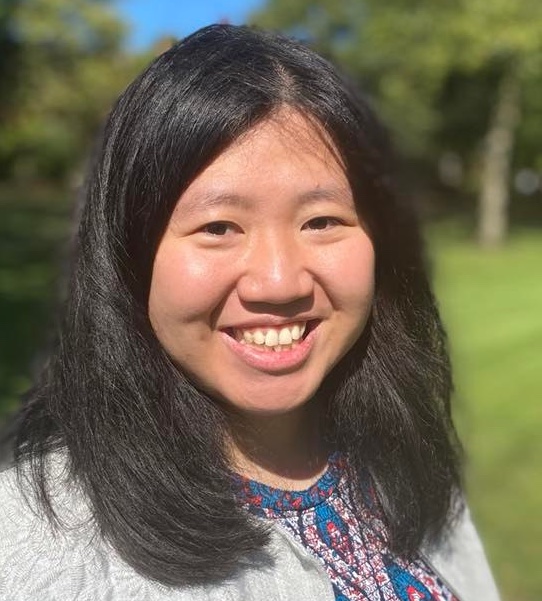 Charmaine Lam (chl6929@nyu.edu) is a PhD student at New York University. She is interested in gender, race and migration at the intersections between British imperial and Chinese diasporic histories in the first half of the twentieth century. Her research examines the shaping of colonial legacies and identities through translocal interactions between British families and Chinese domestic workers in Britain’s East and Southeast Asian colonies
Charmaine Lam (chl6929@nyu.edu) is a PhD student at New York University. She is interested in gender, race and migration at the intersections between British imperial and Chinese diasporic histories in the first half of the twentieth century. Her research examines the shaping of colonial legacies and identities through translocal interactions between British families and Chinese domestic workers in Britain’s East and Southeast Asian colonies
 Alex Langstaff (al5348@nyu.edu) is a PhD student at New York University. His dissertation explores the emergence of public opinion research in the early Cold War. Interested in concepts and metaphors that slide across disciplines, he works on the cultural, intellectual and political stakes of the social sciences in the twentieth century.
Alex Langstaff (al5348@nyu.edu) is a PhD student at New York University. His dissertation explores the emergence of public opinion research in the early Cold War. Interested in concepts and metaphors that slide across disciplines, he works on the cultural, intellectual and political stakes of the social sciences in the twentieth century.
 Lynton Lees (l.lees@columbia.edu) is a PhD candidate in modern European history at Columbia University. Her dissertation, “Democracy’s children: education, citizenship, and the totalitarian challenge to Britain and its empire, 1933-1950”, is an intellectual and political history of interwar educational thought, revealing how existential threats posed by totalitarian regimes caused liberals in Britain to reimagine education as a tool to produce democratic citizens in the metropole, on the continent, and in Britain’s former settler-colonies. Her work has been supported by the National Academy of Education/Spencer Foundation, the North American Conference on British Studies (NACBS), the Institute for Religion, Culture and Public Life (IRCPL) and the Institute for Israel and Jewish Studies (IIJC) at Columbia. She was offered the Fulbright All-Disciplines Postgraduate Award in 2017. She is the administrative assistant for NYCTC.
Lynton Lees (l.lees@columbia.edu) is a PhD candidate in modern European history at Columbia University. Her dissertation, “Democracy’s children: education, citizenship, and the totalitarian challenge to Britain and its empire, 1933-1950”, is an intellectual and political history of interwar educational thought, revealing how existential threats posed by totalitarian regimes caused liberals in Britain to reimagine education as a tool to produce democratic citizens in the metropole, on the continent, and in Britain’s former settler-colonies. Her work has been supported by the National Academy of Education/Spencer Foundation, the North American Conference on British Studies (NACBS), the Institute for Religion, Culture and Public Life (IRCPL) and the Institute for Israel and Jewish Studies (IIJC) at Columbia. She was offered the Fulbright All-Disciplines Postgraduate Award in 2017. She is the administrative assistant for NYCTC.
 Ellie Lowe (el495@cam.ac.uk) is a Ph.D. student at the University of Cambridge. She is interested in cultural, gender, and political histories of twentieth-century Britain. Her thesis uses marriage, along with wider networks of kin, as a lens through which to explore the history of the Labour and Conservative parties in twentieth-century Britain. It analyses the marital status of individuals involved in national and local party politics to understand how marriage and relationships intersected with political life.
Ellie Lowe (el495@cam.ac.uk) is a Ph.D. student at the University of Cambridge. She is interested in cultural, gender, and political histories of twentieth-century Britain. Her thesis uses marriage, along with wider networks of kin, as a lens through which to explore the history of the Labour and Conservative parties in twentieth-century Britain. It analyses the marital status of individuals involved in national and local party politics to understand how marriage and relationships intersected with political life.
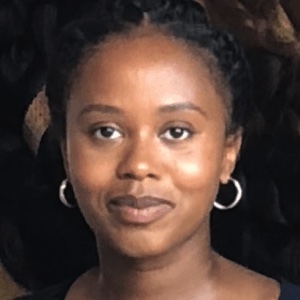 Rochelle Malcolm (rochelle.malcolm@columbia.edu) is a PhD student in modern European history at Columbia University. Rochelle works on the history of visual and popular culture, education and activism; with a specific interest in Black British communities in the second half of the twentieth century.
Rochelle Malcolm (rochelle.malcolm@columbia.edu) is a PhD student in modern European history at Columbia University. Rochelle works on the history of visual and popular culture, education and activism; with a specific interest in Black British communities in the second half of the twentieth century.
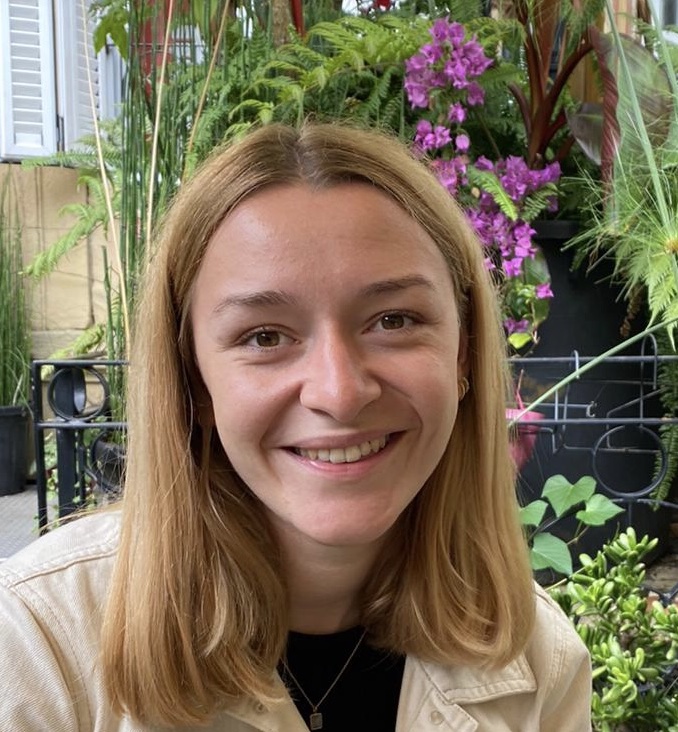 Alice McKimm (am2851@cam.ac.uk) is a PhD student at Emmanuel College, Cambridge. She is interested in the histories of gender, violence and activism. Alice’s dissertation centres on the multivocal yet interconnected movements to establish women’s shelters across Britain after 1971. The research will investigate the literal and symbolic accommodation of women of different backgrounds in women’s refuges and the movement’s influence on cultural discourses and national policy. This work is funded by the Derek Brewer Research Studentship fund.
Alice McKimm (am2851@cam.ac.uk) is a PhD student at Emmanuel College, Cambridge. She is interested in the histories of gender, violence and activism. Alice’s dissertation centres on the multivocal yet interconnected movements to establish women’s shelters across Britain after 1971. The research will investigate the literal and symbolic accommodation of women of different backgrounds in women’s refuges and the movement’s influence on cultural discourses and national policy. This work is funded by the Derek Brewer Research Studentship fund.
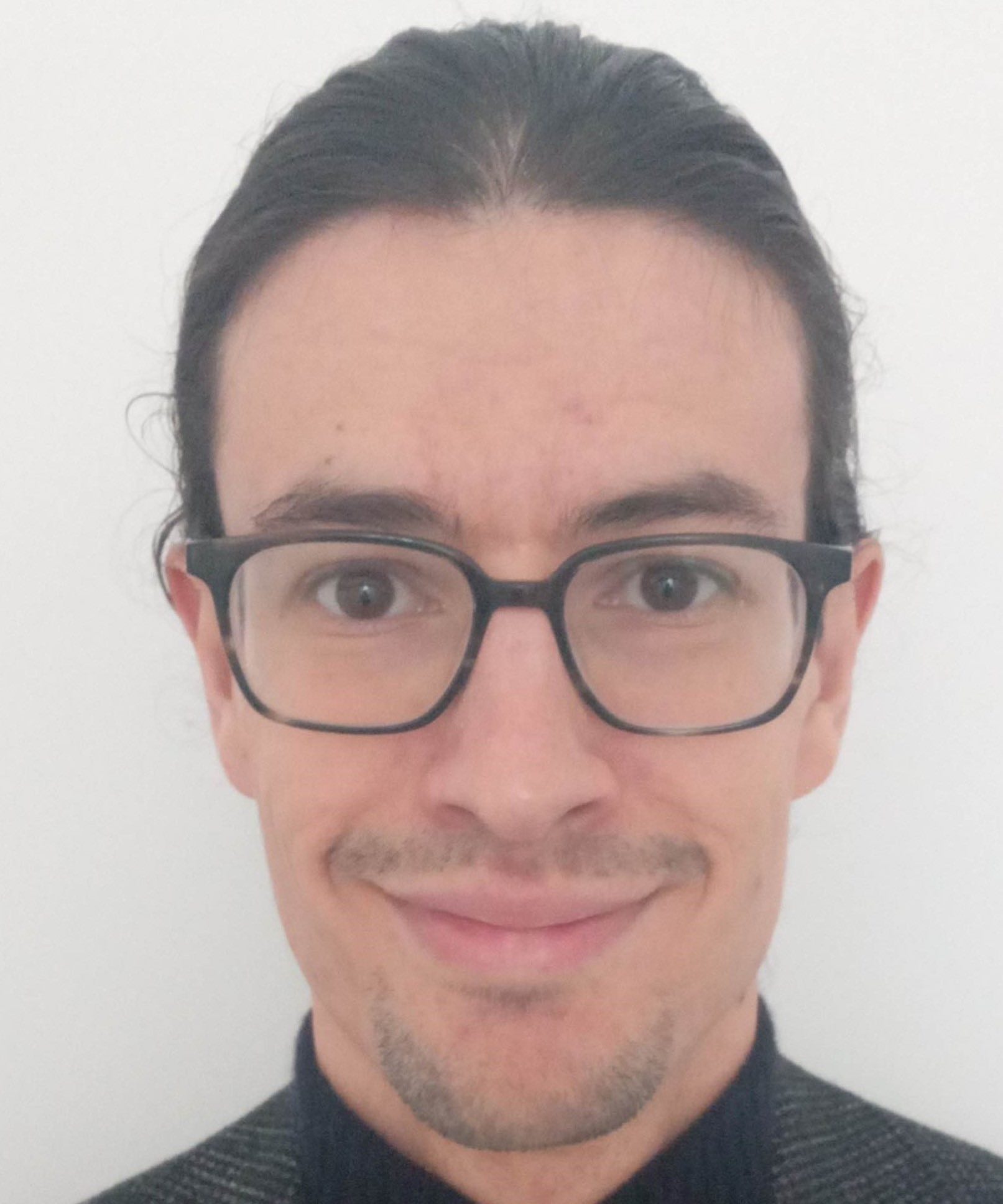 Brett Morritt (btm33@cam.ac.uk) is a PhD student at Cambridge University. Brett’s PhD research is focused on labour market discrimination by private employers in Britain in the mid-to-late twentieth century. Previously, he examined discrimination by Ford in the USA (https://doi.org/10.1017/eso.2021.8).
Brett Morritt (btm33@cam.ac.uk) is a PhD student at Cambridge University. Brett’s PhD research is focused on labour market discrimination by private employers in Britain in the mid-to-late twentieth century. Previously, he examined discrimination by Ford in the USA (https://doi.org/10.1017/eso.2021.8).
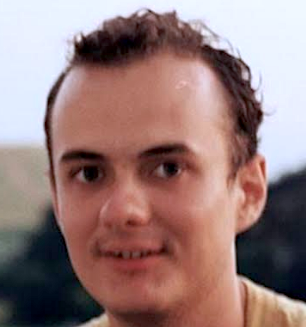 Harry Parker (hp370@cam.ac.uk) is a PhD student at Cambridge, with interests in the history of mass media, popular culture and new technologies. His thesis (for the moment) looks at the relationship between radio and changing modes of selfhood and sociability in the early twentieth century. His work is funded by the Arts and Humanities Research Council’s Doctoral Training Partnership.
Harry Parker (hp370@cam.ac.uk) is a PhD student at Cambridge, with interests in the history of mass media, popular culture and new technologies. His thesis (for the moment) looks at the relationship between radio and changing modes of selfhood and sociability in the early twentieth century. His work is funded by the Arts and Humanities Research Council’s Doctoral Training Partnership.
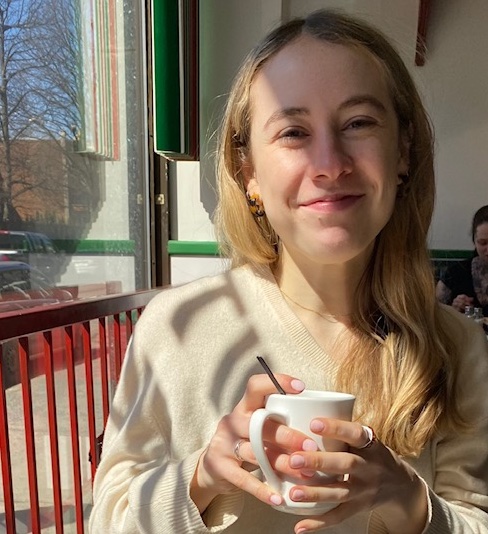 Kate Reeve (kr3016@columbia.edu) is a PhD student at Columbia University. She studies 20th century internationalism and is interested in the politics of indigeneity.
Kate Reeve (kr3016@columbia.edu) is a PhD student at Columbia University. She studies 20th century internationalism and is interested in the politics of indigeneity.
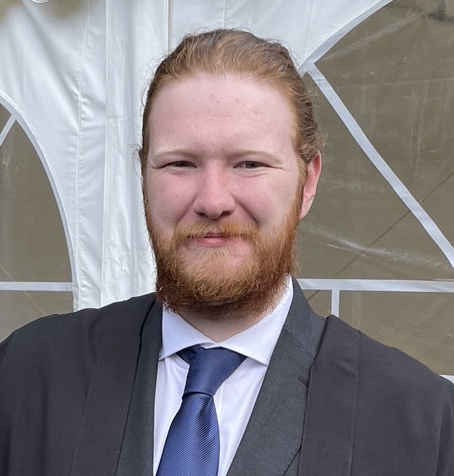 Alex Robertson (atr34@cam.ac.uk) is a PhD student at the University of Cambridge. His interests include music scenes, urban and spatial history, cultural landscapes and the formation of identity in 20th century Britain. His PhD thesis focuses on the history of clubs, music venues and coffee houses in Manchester, Liverpool and Sheffield from 1950-2000, and the ways in which psycho-geographic forms of identity were formed and expressed through music.
Alex Robertson (atr34@cam.ac.uk) is a PhD student at the University of Cambridge. His interests include music scenes, urban and spatial history, cultural landscapes and the formation of identity in 20th century Britain. His PhD thesis focuses on the history of clubs, music venues and coffee houses in Manchester, Liverpool and Sheffield from 1950-2000, and the ways in which psycho-geographic forms of identity were formed and expressed through music.
 Lucy Sharp (lrs2204@columbia.edu) is a PhD student in modern European history at Columbia University. She is researching the history of au pairs in Britain since the Second World War. In particular, she is interested in the relationship between new gendered forms of domestic service, migration, Britain’s relationship to the post-war project of European integration, and social and moral anxieties generated by the mobility of young women.
Lucy Sharp (lrs2204@columbia.edu) is a PhD student in modern European history at Columbia University. She is researching the history of au pairs in Britain since the Second World War. In particular, she is interested in the relationship between new gendered forms of domestic service, migration, Britain’s relationship to the post-war project of European integration, and social and moral anxieties generated by the mobility of young women.
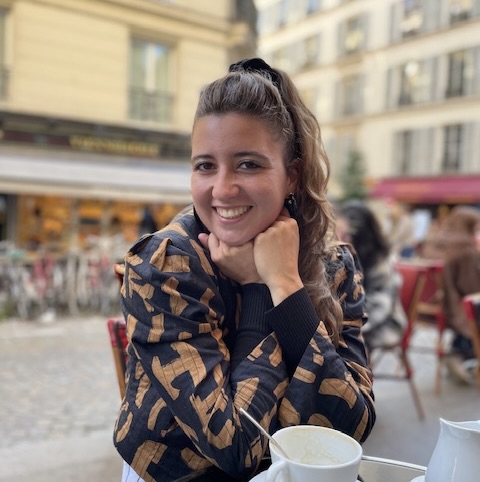 Audrey Siraud (ads2277@columbia.edu) is a PhD student in modern European history at Columbia University. She is studying the male-elite networks that underpinned the political, economic, and cultural powers of the nineteenth century. More specifically, she is comparing the homosociability of gentlemen’s clubs in the Dominions’ metropolises from the late 1820s to 1914. She examines these agents of transnational connections as they shaped new identities through social hierarchies and cultures of manliness, and became the symbols of a singular but overlooked Victorian network at the heart of British-world cities.
Audrey Siraud (ads2277@columbia.edu) is a PhD student in modern European history at Columbia University. She is studying the male-elite networks that underpinned the political, economic, and cultural powers of the nineteenth century. More specifically, she is comparing the homosociability of gentlemen’s clubs in the Dominions’ metropolises from the late 1820s to 1914. She examines these agents of transnational connections as they shaped new identities through social hierarchies and cultures of manliness, and became the symbols of a singular but overlooked Victorian network at the heart of British-world cities.
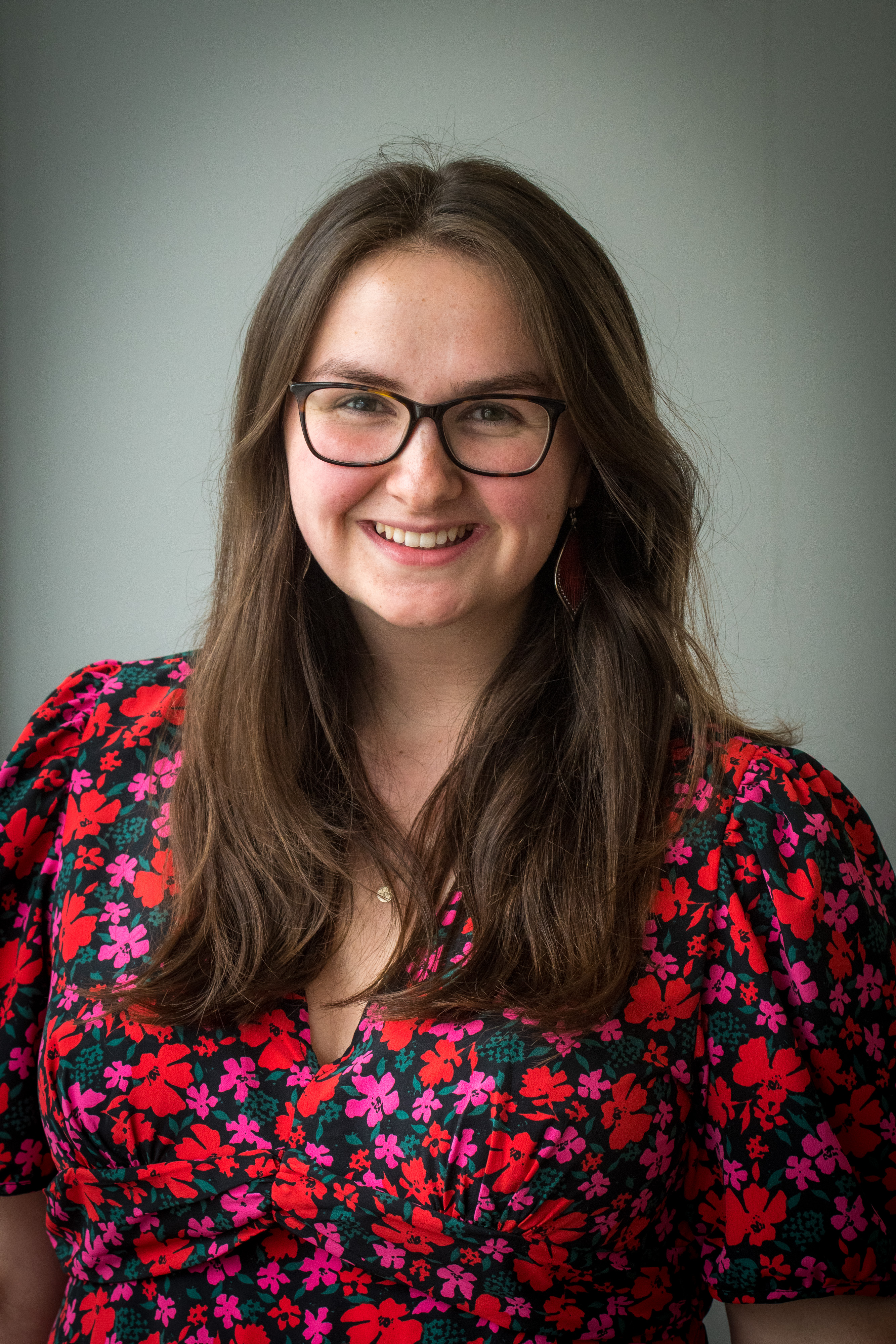 Kirstie Stage (kln31@cam.ac.uk) is a PhD student at the University of Cambridge. Kirstie’s thesis examines the labour and livelihoods of disabled people between 1970 and 2015, investigating the mechanisms through which disabled people expressed, understood, and engaged with important issues within their social and professional lives. Her work is funded through an Open-Oxford-Cambridge AHRC DTP studentship between the University of Cambridge and the British Library.
Kirstie Stage (kln31@cam.ac.uk) is a PhD student at the University of Cambridge. Kirstie’s thesis examines the labour and livelihoods of disabled people between 1970 and 2015, investigating the mechanisms through which disabled people expressed, understood, and engaged with important issues within their social and professional lives. Her work is funded through an Open-Oxford-Cambridge AHRC DTP studentship between the University of Cambridge and the British Library.
Image description: Kirstie is facing the camera, smiling. She has chest-length brown hair, rectangular glasses and white skin. There is a grey background. She is wearing a small silver necklace and red earrings. Her dress has a floral pattern with red, pink, green and black designs.
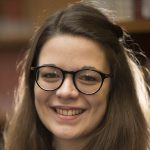 Cherish Watton (clw74@cam.ac.uk) is a PhD candidate in Modern British History at Churchill College, Cambridge. She studies the history of scrapbooks in Britain from 1914-1980, funded by the Wolfson Foundation. Her thesis aims to use scrapbooks to interrogate broader histories of life-writing, archiving, collecting, gender, and emotions. Cherish co-convenes the Cultural History Workshop at Cambridge. In her free time, Cherish runs an award-winning website on the work of the Women’s Land Army in Britain.
Cherish Watton (clw74@cam.ac.uk) is a PhD candidate in Modern British History at Churchill College, Cambridge. She studies the history of scrapbooks in Britain from 1914-1980, funded by the Wolfson Foundation. Her thesis aims to use scrapbooks to interrogate broader histories of life-writing, archiving, collecting, gender, and emotions. Cherish co-convenes the Cultural History Workshop at Cambridge. In her free time, Cherish runs an award-winning website on the work of the Women’s Land Army in Britain.
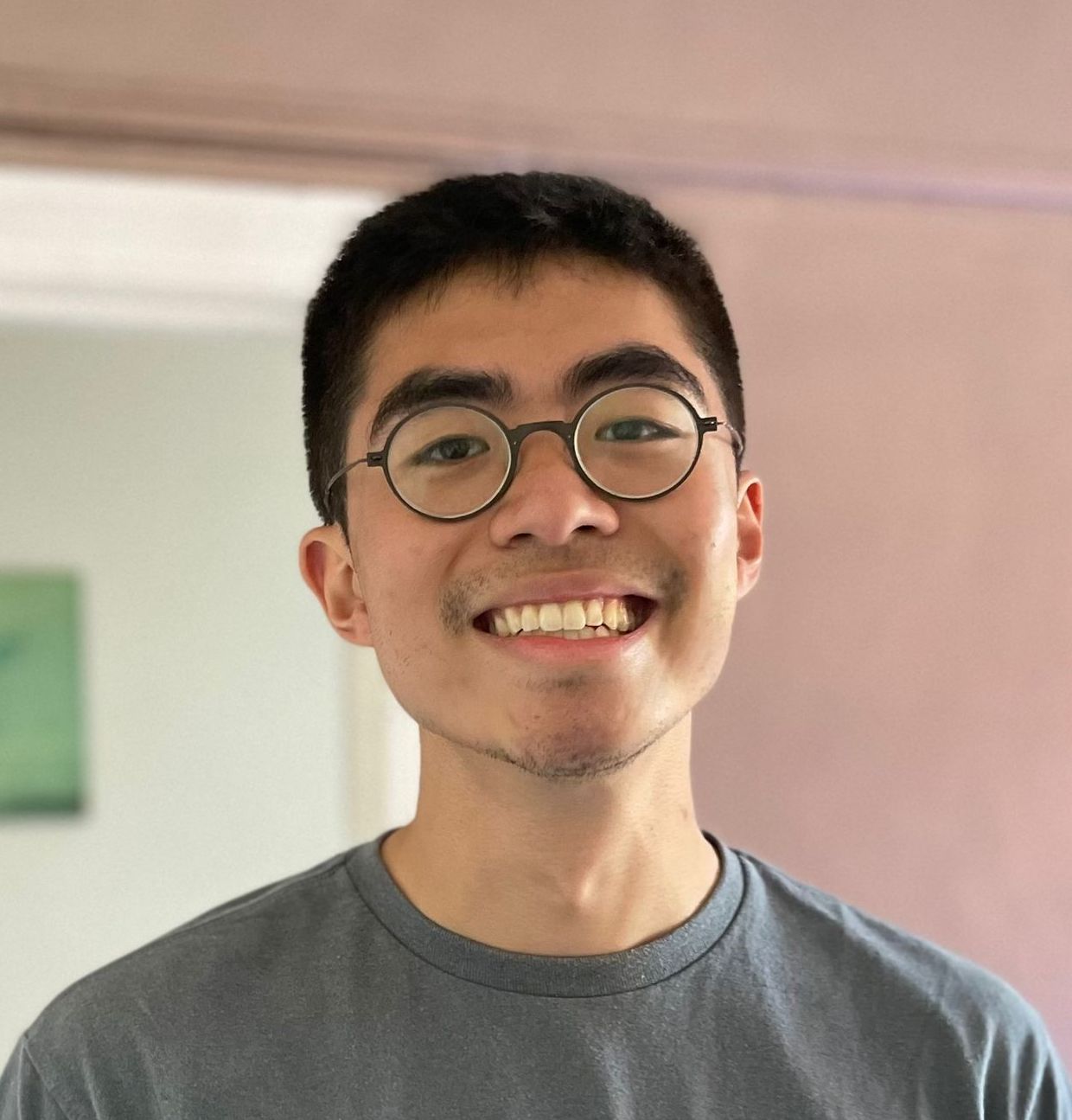 Justin Wei (zjw27@cam.ac.uk) is a PhD student at the University of Cambridge. He is interested broadly in postcolonial social and economic relations through a transnational lens, with a focus on solidarity, immigration, and diaspora. His thesis seeks to examine how Black and Asian communities in Britain and the Caribbean built multiple forms of solidarity as part of movements for racial equity, beginning in the 1960s. His work is funded by the Gates Cambridge Trust.
Justin Wei (zjw27@cam.ac.uk) is a PhD student at the University of Cambridge. He is interested broadly in postcolonial social and economic relations through a transnational lens, with a focus on solidarity, immigration, and diaspora. His thesis seeks to examine how Black and Asian communities in Britain and the Caribbean built multiple forms of solidarity as part of movements for racial equity, beginning in the 1960s. His work is funded by the Gates Cambridge Trust.
